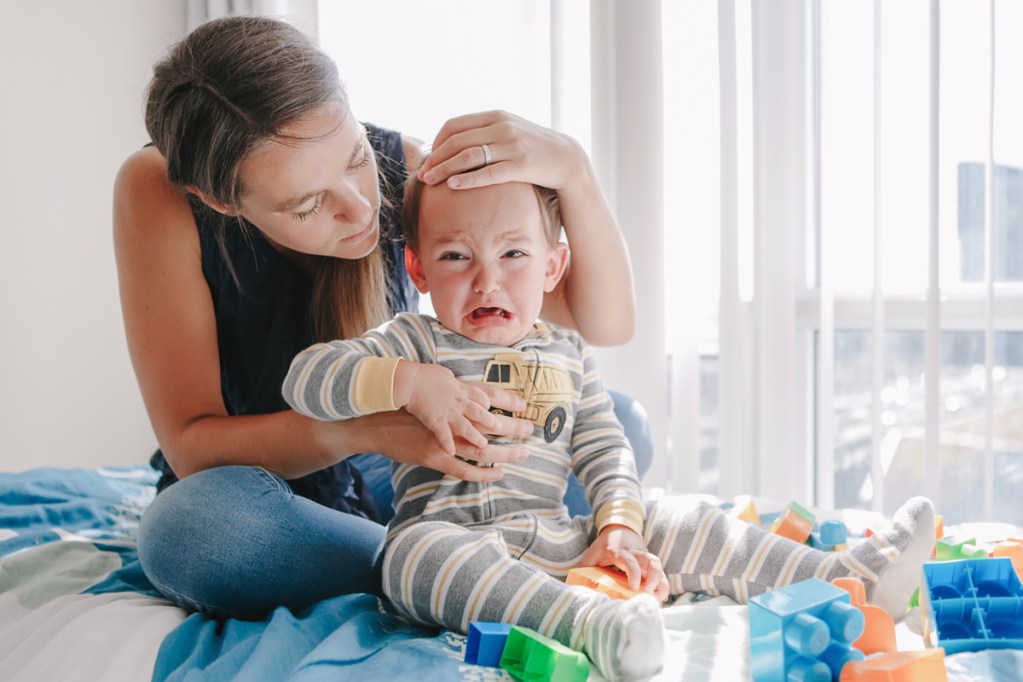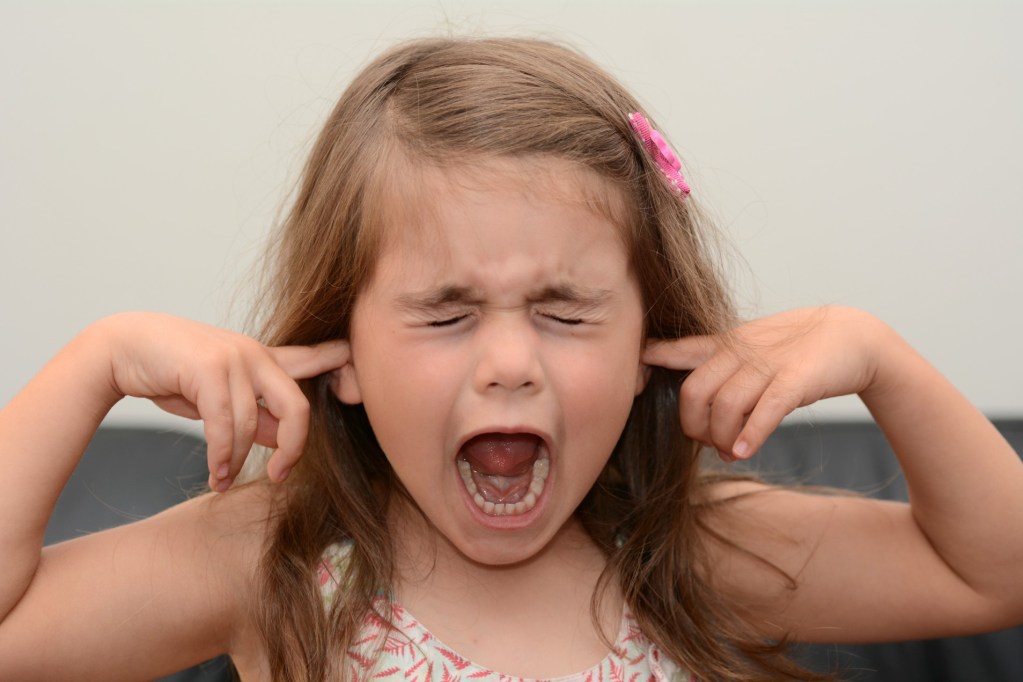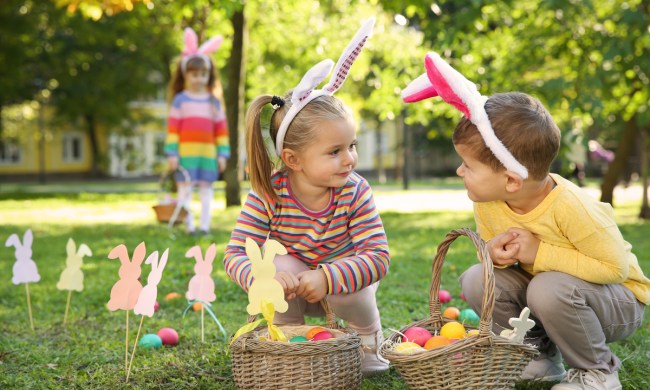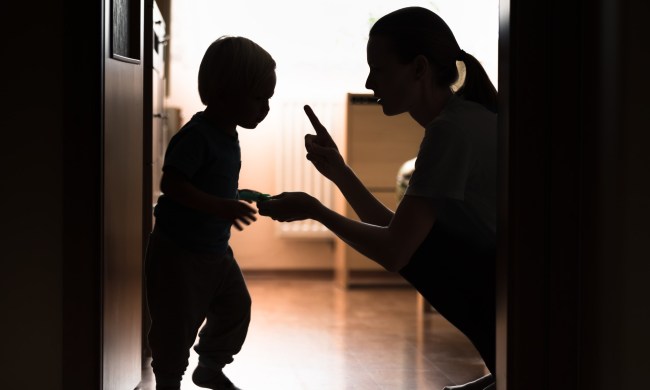Unfortunately, temper tantrums are a natural development phase for most kids, but some children take it to the extreme. When your kid won’t stop screaming and you don’t know why, it makes you want to scream, too. Tension is high, frustration is bubbling, and parents can feel like they’ve lost control. If the behavior happens repeatedly, it’s enough to drive you up the walls. Dealing with a screaming child’s behavior is definitely one of the least favorite things for a parent.
Don’t worry, there are ways to deal with this situation so you’ll both feel better! Your child is feeling just as frustrated as you are, and with patience and understanding, you’ll get to a place where you both remain calm. With these tips and expert advice, your house will soon be quieter. A screaming child’s behavior doesn’t have to leave the whole house in tears, so here’s some help.
How to get your child to stop screaming

When your child won’t stop screaming, the first thing to do is stay calm. The situation is enough to make you want to scream yourself and that is not going to get your child to stop. Take a deep breath and tap into remembering your child needs help expressing emotions and needs you as the parent to get them there. They’re not doing this to annoy you or provoke you. They’re a child who hasn’t developed to a point where they know how to do anything else.
You have to figure out the cause of their screaming. There is a cause, no matter how random it seems. Try asking, but know your chances of getting an answer may not be high. If they’re lost in a tantrum, it may be nearly impossible to figure out the cause if you don’t already know. In this case, your best bet may be to wait it out. In other cases, the simple but disappointing answer is you may not be able to get your child to stop screaming at that moment or for that scenario.
If you do know the cause — as you said, they can’t have ice cream and they started to scream — you have a few options to try.
- Redirect. Turn on some music and turn the screams into singing. Dance party!
- Make it a game. “Wow, you can go really loud! Let’s see how quiet you can whisper next.”
- Don’t join in. Don’t scream with the child, even if you’re trying to make it fun. This will only encourage the behavior.
- Give them space. Designate a space where they’re allowed to scream it out. If you have one, this could ideally be the yard outside. If they associate this place as the only appropriate place to scream, have them stop screaming in the kitchen and have them go to their designated scream spot.
What causes a child to scream

Babies had no other way to communicate other than crying because they couldn’t talk. While toddlers and young children do talk, they don’t have a fully developed vocabulary or emotional understanding to express themselves, and sometimes screaming is the new crying — the only way to express to you they’re upset.
They may scream out of anger, excitement, overstimulation, pain, frustration, or any emotion or physical sensation they’re unable to find the words to express. Screaming gets your attention and you can’t stop them from doing it, so it’s a favorite go-to for kids. Unfortunately for parents, it’s a normal part of toddler development.
If you think your child is screaming too often, talk to your pediatrician about it. If your child is so overstimulated they don’t have any other way to express themselves other than screaming, they could have a sensory disorder or another condition that treatment could help. Screaming meltdowns alone aren’t a sign of autism, but combined with other symptoms it could lead to a diagnosis.
When to ignore a screaming child

The CDC officially recommends ignoring a whining or tantrum-ing child if nothing is physically wrong, but it’s a personal parenting choice. “These misbehaviors are often done for attention. If parents, friends, family, or other caregivers consistently ignore these behaviors, they will eventually stop,” the CDC says.
“Ignoring can help you reduce your child’s misbehavior. Remember that children love attention. Negative attention like screaming or yelling can be rewarding to a child. This is true especially if you were not paying attention to your child before the misbehavior started. By giving your child attention during tantrums, you may accidentally reward the behavior and increase the chance it will happen again. When you ignore some misbehaviors, you can make it less likely your child will do the behavior again.”
Help your child calm down before the screams start

Be proactive on this one, parents. It’s all about finding out how to get your child to regulate themselves when the next screaming fit starts to pop up.
Teach your child other ways to deal with emotions
When your child is calm and receptive to talks, go over other options for them to get their emotions out without screaming in your face. Regularly go over these choices and the next time your child starts to scream, remind them of what else they can do instead of trying to be the loudest land mammal.
Model the way for them
You’re going to work on your own breathing techniques for this one. If people who can’t navigate a roundabout make you full of rage, talk it out in front of your children. Tell them you would love to scream at that person for what they did because your emotions are so high, but instead, you are going to find a song you like to sing to or roll down the windows until you feel calm. Let them know you would like to get your emotions out one way, but are choosing to do it in another, safer, more calm way.
When to talk to the doctor

Screaming is a normal part of child development, but is there ever a point that you should speak to your doctor? A child’s screaming fits should decrease as their vocabulary grows, so typically as your child reaches toddlerhood. The more your child can verbally communicate with you the less they should scream, but if your child is waking up screaming at night or they are struggling with their speech development, you may want to speak to your doctor.
If your child is self-harming in addition to screaming, or you fear the screaming may be a symptom of a developmental delay, you should speak to your doctor. While this may be typical behavior for their age, it’s best to get a professional opinion.
Whether you ignore, redirect, make it a game, give space, or another strategy, just be sure to stay calm and not feed into the energy. Stay compassionate instead of frustrated, as difficult as that can be in a tough situation. You can do this, and you will get through this stage like you’ve gotten through all the others. This one just might be a bit louder than the others.




